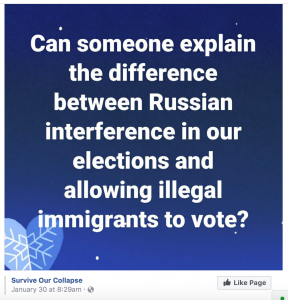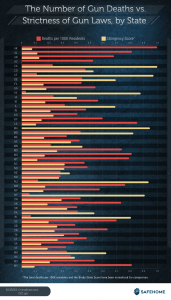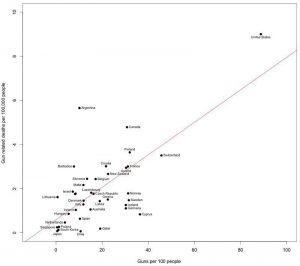Time to Bracket that bracketing
h.saussy
A conference announcement recently received below. I can’t help noticing something wrong with the way they are framing this. Perhaps because the organizers forgot to use the word “lying”? They frame the matter as a tension between “liberal,” “top-down” “cosmopolitanism” and “bottom-up… supposedly excessive… nationalism.” The former “paradigm” is said to be “in crisis.”
“Under attack” does not mean the same thing as “in crisis.” Does the whole project of liberal society just collapse because a bunch of flat-earthers exist? Is US history to be rewritten because some neo-Confederates find the Emancipation Proclamation went too far?
If your social constructivism has told you to admit fascists to the company of reasonable people, perhaps you should stop listening to it. It served its purpose. Now find yourself a new “politics of truth.”
A crisis in ‘coming to terms with the past’?At the crossroads of translation and memory
1-2 February 2019
Senate House, University of London
Over the past decade, a particular notion of ‘coming to terms with the past’, usually associated with an international liberal consensus, has increasingly been challenged. Growing in strength since the 1980s, this consensus has been underpinned by the idea that difficult historical legacies, displaced into the present, and persisting as patterns of thought, speech and behaviour, needed to be addressed through a range of phenomena such as transitional justice, reconciliation, and the forging of shared narratives to ensure social cohesion and shore up democratic norms. Such official and international memory practices tended to privilege top-down cosmopolitan memory in an attempt to counter the bottom-up, still antagonistic memories associated with supposedly excessive effusions of nationalism. In a context of the global rise of populist nationalisms and of uncertainty linked by some politicians to migration, this tendency is increasingly being challenged, capitalizing on populist memory practices evident since the 1980s and creating what might be seen as a crisis in this liberal approach to ‘coming to terms with the past’.
Yet rather than rejecting a politics based on such ‘coming to terms’, new political formations have in fact increasingly embraced it: a growing discourse of white resentment and victimhood embodied in the so-called ‘Irish slave myth’, the wide visibility of the ‘History Wars’ controversy in Australia, legislation such as the Polish ‘Holocaust Bill’, or the withdrawal of African states from the International Criminal Court are evidence of the increasing impact of a new politics underpinning memory practices, and reveal the ways in which diverse populist and nationalist movements are mobilizing previous tropes. Moreover, these new memory practices increasingly have their own alternative internationalisms too, reaching across or beyond regions in new transnational formations, even as they seemed to reverse the earlier ‘cosmopolitan’ functions of memorialization.
Scholars have for a time noted a renaissance of these memory politics in various regions, but an interconnected globally-aware account of this shift remains elusive. Building on an ongoing dialogue between two AHRC themes, Care for the Future and Translating Cultures, we aim to bring together the approaches of both translation and memory scholars to reflect on the transnational linkages which held a liberal coming-to-terms paradigm together, and to ask whether this is now in crisis or undergoing significant challenges. The event will reflect also on the ways in which institutions such as museums, tourist sites or other institutions are responding to the emergence of these new paradigms.
The conference seeks to historicize and chart the translations, networks and circulations which underpin these new memory paradigms of nationalist and/or populist movements across a range of political, cultural and linguistic contexts, welcoming contributions that chart its ideological origins and growth in transnational terms; address the ways it draws on techniques and tropes of former paradigms; analyse its relationship to new ideological formations based on race, nationalism and gender; and chart its current international or transnational formations.
Scholars might reflect on these themes in terms of:
• Education, museums, memorials and archives;
• Material cultures;
• Legal, economic and political discourse;
• Dark tourism and travel;
• Digital technology;
• Performance, rituals and new heritage practices;
• Actors and agents, e.g. migrants, activists, politicians;
• The growth of transnational networks or the translation of this new challenge, across borders.
We particularly encourage individual case studies focusing on a range of ethnic, cultural and national themes to foster a truly global and transnational discussion.
The conference is jointly organised by two Arts and Humanities Research Council themes: Care for the Future: Thinking Forward through the Past, which affords an opportunity for researchers to explore the dynamic relationship that exists between past, present, and future through a temporally inflected lens, and Translating Cultures, studying the role of translation in the transmission, interpretation, transformation and sharing of languages, values, beliefs, histories and narratives.
Proposals of no more than 300 words, and a short CV, should be sent to Eva.Spisiakova@liverpool.ac.uk by 15 November 2018.
Funding opportunities for travel and accommodation are available, but we ask that potential contributors also explore funding opportunities at their home institutions.








